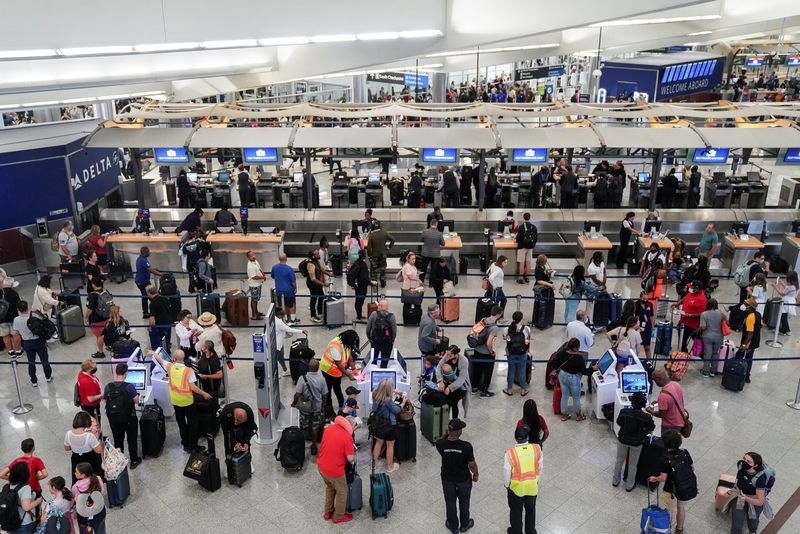US screens record-setting 2.99 million air passengers in single day
2024.06.24 18:46
By David Shepardson
WASHINGTON (Reuters) – The U.S. Transportation Security Administration said it had screened 2.99 million airline passengers on Sunday, the highest-ever number in a single day.
The agency said on Monday it expects to screen more than 32 million travelers during the 2024 Independence Day travel period that runs from Thursday through July 8, which is 5.4% higher than 2023 levels.
The TSA said it expects on Friday it will for the first time screen more than 3 million people, the busiest day expected during the upcoming holiday period. Sunday’s record broke the prior high of 2.95 million set in late May, while seven of the 10 busiest travel days ever have occurred over the past month.
A group representing major U.S. airlines forecast record summer travel with airlines expected to transport 271 million passengers, up 6.3% from last year.
Industry group Airlines for America said U.S carriers plan to fly more than 26,000 daily flights this summer, up nearly 1,400 or 5.6% over 2023, when they carried 255 million passengers. The summer travel season forecast is for June 1 to Aug. 31.
The forecast comes as the Federal Aviation Administration is struggling to address a persistent shortage of air traffic controllers. Some airlines voluntarily trimmed New York flights last summer to address congestion issues and have raised new concerns about the lack of controllers.
The FAA said on June 5 it would again extend cuts to minimum flight requirements at congested New York City-area airports through October 2025, citing shortages of air traffic control staff.

The FAA said the number of controllers handling traffic in New York is insufficient for normal traffic levels and that without “increased flexibility,” congestion, delays, and cancellations are likely at JFK, LaGuardia and Newark airports.
Under minimum flight requirements, airlines can lose their takeoff and landing slots at congested airports if they do not use them at least 80% of the time. The FAA’s waiver allows airlines to fly fewer flights and still retain slots.








